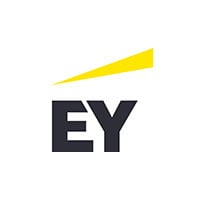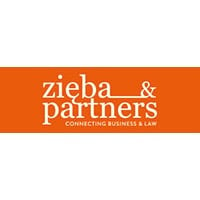

General counsel, business integrity officer | Unilever Poland and Baltics




Łukasz Szymanski
General counsel, business integrity officer | Unilever Poland and Baltics
What are the most important transactions and litigations that you have been involved in during the last two years?
Starting from a transactional perspective I can mention the spreads business divestment by Unilever Group in 2017 and 2018. According to my knowledge, globally it was the biggest private equity transaction at that time and I had a privilege to lead it from a legal and compliance perspective in my respective jurisdiction. This was a very complex and challenging project that required different skills, including those on M&A transactions and corporate and tax, but also IP, real estate and supply chain expertise.
Litigations I can freely mention are mainly related to IP matters and lookalike products. At Unilever – just after its people – the biggest strength and pride of the company are its many well-known brands. Their protection from unfair competition is vitally important for the company and its business. Speed and agility are key as we cannot afford any failures in this respect.
How important are “soft skills” or personal attributes outside of technical legal skill, and which “soft skills” do you feel are most important for an in-house lawyer to possess?
I strongly believe that soft skills should be vitally important for each successful legal counsel, however they get additional importance for the in-house profession, where legal needs to adapt quickly to business environmental and market conditions for companies its operating with. If I were to name only a few the most important soft skills I would mention ability to build relationships, communication skills, team working and work ethic. These are crucial, but surely not the only ones that successful in-house lawyers should embrace.
Do you utilise any legal tech products, and if so, how do these assist you in your role?
I believe that digitalisation and simplification of a legal department’s daily routine is one of the most important factors in the journey to build a world class legal function. For this reason, we are about to implement an IT tool for contract lifecycle management. At the same time we are working on standardisation processes in assisting marketing teams in less complex cases.
What advice would you give to any peers or colleagues working in the Polish market for the first time?
The Polish economy has significantly developed and Poland is still one of the fastest growing markets in Europe with one of the lowest unemployment rates. All these factors make Poland and more broadly CEE a great place
to be and perform business operations. It also
makes it challenging due to fierce competition
and business expectations. For legal, it means
that starting a business adventure in the
Polish legal market means one may face big competition.
My advice would be the following – be stubborn in reaching your goals, always aim to deliver the highest quality of legal advice possible, do not over use “legalese” wording in daily routines, understand the business and its needs, be solution‑oriented and use technology. I also believe these are the points that can serve well in different jurisdictions as well.
What can law firms in Poland, and the wider CEE region, do to win more business from you?
I believe that in recent years the legal services market has developed a lot in this part of Europe, and aside from the branches of multinational legal companies, many valuable local offices have strong positions in the market. These offices provide very similar quality of services and offer them at the same pace for lower rates. Therefore the things that may make a difference are not exactly directly based on typical legal aspects like professional and timely advice.
At first, law offices needs to understand the business and its needs and its lawyers must have good communications skills. Other factors seem to be equally important and these are like communication skills, a solution-oriented approach, high expertise in given market segments, rather than being experts in various kinds of legal profession. Personally, I have been working for many years with the same external legal partners and I value their service not just because of its quality and business understanding, but also for the relationships that have been built over the time.
FOCUS ON… THE ROLE
I truly believe that these are the best times to be a part of the in-house legal profession. We live in a constantly changing business environment, companies need to constantly reshape their strategies and adjust to new consumer needs and market trends. These are very challenging conditions but at the same time very interesting and engaging for active in-house legal counsel who must be at the centre of those changes.
At the same time we see the evolving role of GCs – contrary to the former role, the GC of today has to be proactive in creating a risk aware culture. The GC must know how to balance his role of being a protector and enabler of values at the same time. In modern organisations GCs should participate in decisions that are not just risk related but also about opportunities. What is more, these are not exactly limited to the law but also have a broader business character.
One of the most important parts of a GC’s role in these times is creating a proper legal strategy to truly future-fit a legal function. It means that despite the importance of digitalisation, people should stay at the heart of who we are and what we do as in-house legal counsels. Companies will rely on people judgment and these people should be supported by technology, not replaced. Truly future-fit legal teams should generate trust for the business and also externally.
Successful GCs must keep an external focus to understand and take a leading role in transferring the business and stay solution‑oriented to champion growth of the company business. I also truly believe that modern legal department should lead for a change and enable growth through prioritisation and working with speed and agility to allow companies to transform its business or enter new channels, also through digital transformation and portfolio changes.
This is how we aim to work at Unilever legal department, to unlock the growth and secure business for the years to come. This also requires us to challenge ourselves to develop skills that are and will be required in the future.